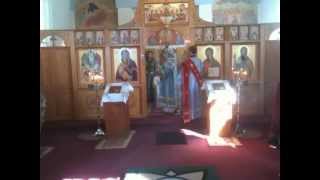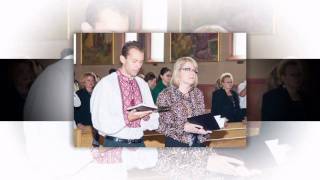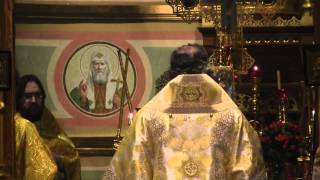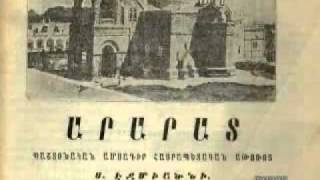Friday, 16 January, 2026г.
















Где искать: по сайтам Запорожской области, статьи, видео ролики
пример: покупка автомобиля в Запорожье
Eis Polla Eti Despota! Ис полла эти деспота! Εις πολλά έτη
Εις πολλά έτη Δέσποτα! Is translated as "many years master" in english. This is being sung to Bishop Michael (Dahulich) of New York and New Jersey (OCA). It is usually sung for a hierarch of the orthodox church (Traditionally sung as in this video in the Russian Orthodox Church). The composer you may hear in your church which is the trio by D. Bortiniansky. This eis polla eti despota is by another composer. Enjoy! This is a clip from the hirearchical liturgy. To view the whole video please go to this link: http://www.youtube.com/watch?v=flnFhaVenqk&feature=plcp
Some more history: The Orthodox Church during the Kievan period was subject to Constantinople, and until 1237 the Metropolitans of Rus' were usually Greek. The Rus' Church continues to sing in Greek the solemn greeting to a bishop, eis polla eti, despota ("Many years to you, Master"), in memory of the days when the metropolitan came from Constantinople (history provided by orthodoxwiki.org).
Εις πολλά έτη Δέσποτα! Переводится как "много лет мастером» на английском языке. Это поется епископа Михаила (Dahulich) из Нью-Йорка и Нью-Джерси (ОСА). Как правило, пели иерарх Православной Церкви (традиционно поют как в этом видео в Русской Православной Церкви).Композитор вы можете услышать это Д. Bortiniansky. Это другой композитор. Наслаждайтесь! Это отрывок из hirearchical литургии. Для просмотра всего видео, пожалуйста, перейдите по этой ссылке: http://www.youtube.com/watch?v=flnFhaVenqk&feature=plcp
Еще несколько истории: Православная Церковь в период Киевской подвергался Константинополь, и до 1237 митрополитов Руси, как правило, греческий. Церкви Руси продолжает петь по-гречески торжественное приветствие епископа, ЭИС полла эти, деспота ("Много лет тебе, Мастер»), в память о тех днях, когда столичные пришел из Константинополя (история предоставляемых orthodoxwiki.org ).
Похожие видео
Мой аккаунт


 У вашего броузера проблема в совместимости с HTML5
У вашего броузера проблема в совместимости с HTML5


